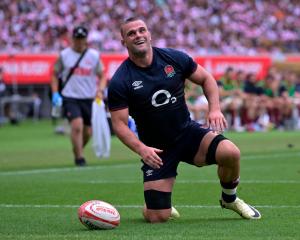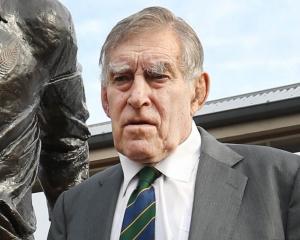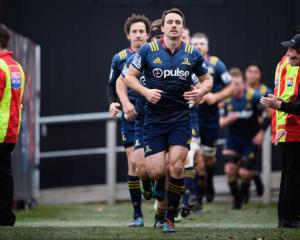
Former All Black and Otago captain Taine Randell believes rugby players are not paid enough, and provincial unions have to realise they are competing in a world market.
Randell, who played in both the amateur and professional eras, said people may think a lot of occupations were overpaid, but the market set the rates.
"Unions are obviously living beyond their means, but then the Hawkes Bay union has not made a loss in the past 15 years, just through good management.
The salary cap is a way for unions to save money," Randell said.
He said it was not a genuine salary cap, as unions such as Canterbury did not include payments from the national union.
"We should be encouraging people to pay as much as they can to keep people here. There are better ways in ensuring a more even competition than a salary cap.
"You could argue, with the way players are heading overseas, that they are not being paid enough."
He said unions had to be smarter to attract more money into the game.
New Zealand Rugby Players Association chief executive Rob Nichol said contrary to what many people thought, professional rugby in New Zealand did make money.
He said sports organisations had been getting into trouble for a long time, well before players started getting paid.
"Now with players getting paid, the scale of losses are way bigger," Nichol said.
He said the way union constitutions were structured brought out serious issues with governance and management, which hurt unions.
Club members - the men and women on the street - voted for board members, and Nichol saw that as a problem.
"You do not know what they do not know. There is no consideration of the business skills of some people and whether they have the necessary qualities that a union needs," Nichol said.
"It is like any business, really.
Some people set up businesses and they fail. But the business may have worked. It is just the people who were running it were not the right people."
He said players would always look at options here and overseas, and unions were in a worldwide market.
"A player may have more than one offer on the table, so of course money is going to come into it. Unions are going to have to compete.
"It's not right to blame the players. Like everyone, they are looking for a job. Some of these guys who came down to Otago had been professional rugby players for 10 years and will be considering contracts from other unions ... Otago is competing for talent like any other union and has to pay for that talent."
The ITM Cup was an investment in the future of rugby, producing many All Blacks, and was the best development model the national game had, Nichol believed.
"We can put a guy in an academy and he might get a contract of say $4000, up to $15,000. But we've got league clubs offering $40,000 to these guys."
The players could earn a maximum of $60,000 in the ITM Cup but Nichol said very few players were paid that much.
Becoming an All Black was a big pull for players and kept many of the players in New Zealand.
The salary cap for a provincial union was $1.35 million or 36% of commercial revenue, whichever was lower.
"Though it has not necessarily been the case in the last couple of years, what has happened before that was the teams which spent the most usually ended up the top of the table. But some unions are smart and have gone about things in different ways."
Nichol said though he did not have figures for the 2010 and 2011 years, professional rugby was profitable.
"It might have come back a bit in the last couple of years but from 2007-09 professional rugby made a profit of in excess of $20 million."












